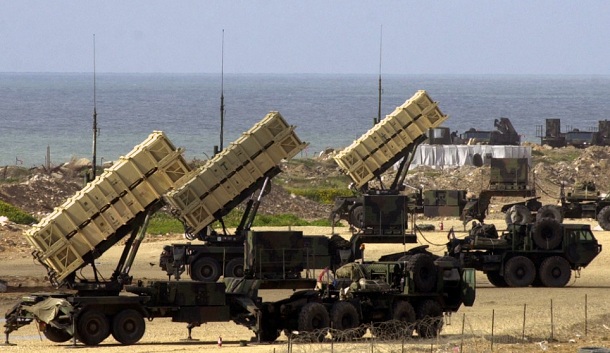NATO has informed his colleagues in the military alliance that Russia needs clear technical documentation that the US missile defense will not pose a security risk for his country.
The US government is contemplating significant intervention in the Syria conflict and has discussed employing Patriot Air and Missile Defense Systems in Turkey and directly providing arms to opposition fighters
Russia says it wants solid guarantees “expressed in a legally-binding manner” that the US missile defense shield will never target Russian territory, Aleksandr Grushko said on Friday.
He stressed, however, that the document should not be draped in the “language of political declarations,” but in clear military-technical fashion.
Moscow needs an assurance that the system is specifically designed to counter potential missile threats outside the Euro-Atlantic area without undermining the strategic balance, that is, intercept Russian strategic nuclear weapons, he added.
“Today, they offer us missile defense cooperation without understanding its ultimate goal,” he said. “We believe that first it is necessary to reach an agreement on the framework of this cooperation.”
The technical data provided to Russia should include geographical location of interceptors, radars, the speed of warheads and many other elements that are absolutely clear to the military, Grushko noted.
The Russian envoy to NATO admitted that the debate over the US missile defense shield is “practically deadlocked,” and the negotiation process within the framework of the NATO-Russia Council (NRC) has come to a standstill.
Neverthless, Grushko said there still remains a “window of opportunity” and a crisis may be avoided if the necessary amount of “political will is demonstrated.”
Progress is possible, he said.
The envoy also mentioned recent computer exercises involving “theater missile defense operations,” which took place in Germany this year that “proved the advantage of a joint missile defense system between Russia and NATO.”
“If we reach an agreement on missile defense, it would mean that Russia and NATO are really pooling their resources for the sake of common security,” Grushko concluded.
[adrotate banner=”46″]

